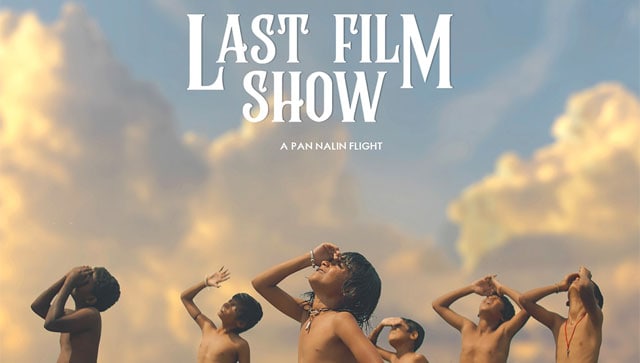First things first. No, this masterpiece did not get sent as our Oscar entry for its protagonist who is a tea-seller’s son and sells tea on a railway platform in the village of Gujarat. And no, it is NOT, repeat, NOT, a copy of Giuseppe Tornatore’s Cinema Paradiso, although the basic idea of a small boy’s bonding over cinema with a much older projectionist does have its roots in the Italian film.
That apart, Chhello Show, a.k.a The Last Film Show, has a delicious, disarming flavour of its own. And I use the description ‘delicious flavour’ most consciously, for food, Gujarati cuisine plays a very important role in the masterly study of cinema and its luminous impact on an impressionable mind.
The setting is a small, soporific Gujarati village named Chalala. Writer-director Pan Nalin and his cinematographer Swapnil S. Sonawane prowl the bleak but bright topography, along with the 9-year old protagonist Samay, played Bhavin Rabari, who is hard to forget, if for no other reason, then for his flowing tresses which do not conceal the excitement in his eyes every time he sees the flickering images on the sooty silver-screen.
Samay’s partner, in his guilty pleasure, is a 40-something year old projectionist Fazal (Bhavesh Shrimali), who lets Samay sneak into the projection room in exchange for his mother’s fabulous meals.
Here, I must pause to say that the sequences featuring Samay’s mother (Richa Meena) poring over the cooking are the highlight of the film. As she kneads, cuts, fries, boils, steams and cooks with an array of spices and vegetables, the ritual of cooking becomes a metaphor for the diversity in the making of cinema.
Cinema and food are closely connected in Pan Nalin’s film. And thank the Gods of the sensory perceptions for the heady aroma of spice and cinema that courses through the veins of this vibrant rugged passionate and therapeutic film about growing with a passion for cinema.
The storytelling is sometimes magical, specially in the way the director captures the captivating images on the screen and connects it with Samay’s fledgling knowledge of how cinema is made, and the impact it has on an impressionable mind which has never seen the world outside his tiny village.
“I want to see the light,” Samay tells his careworn father (Dipen Raval) at the end before he leaves to pursue his dream. But not before watching in inexpressible sorrow. Reels and reels of his dear precious films being melted into colourful bangles.
Pan Nalin’s magical masterpiece tells us that dreams can take varied forms. They may be shattered. But they don’t necessarily lose their relevance in the process of being reconstructed renovated.
It’s been ages since I saw a film celebrate the magic of cinema with such vivacity and charm. If this film doesn’t get us the Oscar, nothing will.
Subhash K Jha is a Patna-based film critic who has been writing about Bollywood for long enough to know the industry inside out. He tweets at @SubhashK_Jha.
Read all the Latest News, Trending News, Cricket News, Bollywood News, India News and Entertainment News here. Follow us on Facebook, Twitter and Instagram.

